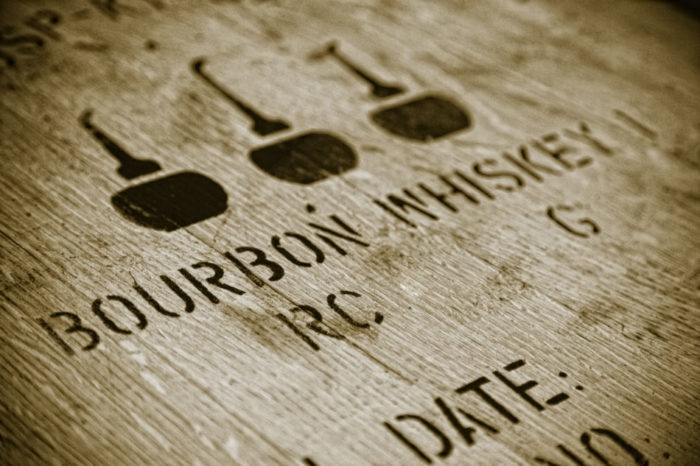
Bourbon stands its ground as a drink and an important cooking ingredient. It finds use in several recipes, going all the way from ribs to cakes. But in the event you can’t use bourbon for some recipes, don’t panic! Try these bourbon substitutes.
For recipes, you can use alcoholic as well as non-alcoholic substitutes to bourbon. During cooking, a lot of alcohol evaporates, usually leaving behind a wonderful flavor. Of course, these replacements should match the taste of bourbon, but sometimes it might be worthwhile to take a different route.
Let’s check out some cool alternatives to bourbon.
Top Bourbon Substitutes Worth Trying
1. Rum
Rum is a treat as a cooking ingredient. It doesn’t have the same flavor as bourbon, but its rich flavors more than make up for that. Rum may not be the best substitute, but it works well for most recipes.
Since rum is distilled from molasses, it imbibes some taste that can be a match for the caramel flavor in bourbon. Plus, modern rum is often spiced, so you might find a few options that come closer to bourbon in flavor.
The smooth and warm taste of rum is a treat for most recipes. It works well with meat and desserts. The replacement ratio for rum and bourbon is 1:1 (use equal amounts).
2. Brandy
The versatile and flavorful brandy is a good replacement for bourbon in several recipes. Brandy is distilled from wine and matured in oak casks. Its subtly sweet and fruity flavor is especially well-suited for desserts.
When using brandy in place of bourbon, follow a 1:1 ratio (use equal amounts).
3. Dark Beer
Dark beer is something of a dark horse when looking for a bourbon replacement. It’s not the most natural choice, but its sweeter notes with hints of caramel come close to bourbon in flavor. Plus, in some places, getting hold of beer might be easier than finding alcohol.
This option is more suitable for sweet recipes and desserts. Choose dark beer when working with recipes like eggnog and pecan pie. The replacement ratio for dark beer vs bourbon is 1:2 (use one spoon of dark beer for two spoons of bourbon).
4. Scotch
Although scotch finds more use in drinking rather than cooking, there are a few scenarios where it contributes to the culinary world. In these cases, it’s a rather impressive replacement for bourbon.
The complex and rich flavors of scotch get along well with those from bourbon, making it a suitable choice. Scotch works best when making cocktails like the Manhattan or an Old Fashioned, but can also work for desserts like pecan pie.
The conventional replacement ratio for scotch with bourbon is 1:1 (use equal parts).
5. Whiskey
This seems like a good choice to replace bourbon. After all, bourbon is a type of whiskey. But there are some important differences, which explain why bourbon is a specialized form of whiskey. One important part is that whiskey is generally made from cereal grains (usually wheat) and then aged. Bourbon, on the other hand, must use at least 51% corn in its production.
So, while there is a significant difference between the two, it usually works out well after cooking. The best uses are for desserts and sweets. The conventional ratio for replacement is 1:1 (use equal parts of whiskey to replace bourbon).
5. Cognac
Cognac is a specialized type of brandy made in France. Famed for its taste and flavor as a drink, cognac works equally well as an ingredient in recipes. One of the requirements for producing cognac is that it must be aged in oak barrels for at least two years. This helps give it a great taste and depth of flavor.
You can replace bourbon with cognac in pretty much all recipes. The recommended ratio for the substitution is 1:1 (use equal parts of cognac to replace bourbon).
6. Vanilla Extract
You could categorize vanilla extract as an alcoholic or non-alcoholic option. Traditionally, vanilla extract includes some alcohol. However, alcohol-free options are increasingly common and popular.
Vanilla extract is an unlikely yet remarkable option to replace bourbon in a recipe. It gets close to the bourbon flavor and also adds the welcome touch of vanilla to a recipe. As you can guess, its preferred use is for baking and desserts.
A 1:1 replacement ratio is acceptable here, as long as you only need a few spoons of the extract. It’s worth remembering that vanilla extract is sweeter and has a relatively sharper flavor as compared to bourbon.
7. Bourbon Vanilla Extract
As we know already, vanilla extract is an excellent substitute for bourbon. But what if we could get even closer in flavor and taste. Well, say hello to the bourbon vanilla extract! As the name implies, this has bourbon added to vanilla extract.
In the traditional sense, bourbon vanilla extract was made with Madagascar vanilla beans. As with conventional vanilla extract, this one contains alcohol, but alcohol-free options are fast gaining ground.
An option like this will work as a good bourbon replacement without any alcohol. Ensure that you’re buying the right kind of extract by carefully reading the label.
8. Ginger Beer
Not so long ago, ginger beer used to contain alcohol. Most modern ginger beer, however, is non-alcoholic. Its color and flavor make it an excellent choice for replacing bourbon. You might have to watch out for the fizz in the beer, but it usually doesn’t cause major issues.
Try it for savory dishes and you might be surprised with the results. The replacement ratio here is the same as dark beer. Use 1 spoon of ginger beer to replace two spoons of bourbon.
9. Apple Cider Vinegar + Brown Sugar
Want to go completely alcohol-free? The unlikely combo of apple cider vinegar and brown sugar could save the day as a cooking bourbon substitute. The tart flavoring of apple cider vinegar helps manage the overall approach, while brown sugar adds sweetness and color.
Of course, we don’t want the mix going too sweet, so keep an eye on the brown sugar usage. You could mix a tablespoon of apple cider vinegar with ⅓ tablespoon of brown sugar. This mix will replace one tablespoon of bourbon.
This option is a bit of a patch, so use it only as the last resort. It’s worth a shot for recipes like BBQ sauce, pecan pie, and pulled pork.
10. Apple Cider Vinegar + Peach Nectar
Matching apple cider vinegar with peach nectar is a more refined option compared to the use of brown sugar. The taste gets very close to that of bourbon. The mix works exceptionally well with fruity recipes, though it’s suitable for other options as well.
It’s not a good choice for baking, but try it for things like BBQ sauce or pork shoulder. To make this combination, mix equal parts of apple cider vinegar and peach nectar. You can use this mix to replace bourbon in a 1:1 ratio, though it might be useful to start with a slightly smaller amount.
FAQs And Related Information
Is there such a thing as non-alcoholic bourbon?
Yes, non-alcoholic bourbon is available through a few brands like Spiritless. It includes flavors of oak, caramel, and vanilla, to match the taste of the classic bourbon. However, since this isn’t made quite like bourbon, the flavors can feel artificial. Non-alcoholic bourbon lacks the depth of flavor and intensity that makes bourbon so famous and well-liked.
Does the alcohol cook out of bourbon?
It is a general belief that alcohol cooks out of a recipe with heat. It either evaporates or burns out, leaving behind just the flavor. This belief is incorrect, or at least doesn’t paint the full picture. Here’s the thing – not all alcohol evaporates or burns out during food. In fact, some recipes can even retain most of the alcohol.
The amount of alcohol remaining is usually a function of time. The longer a dish is cooked, the lower the alcohol content. A report found that a recipe cooked for two and a half hours had about 4% of the alcohol remaining. A recipe that spent 15 minutes on the heat had 40% alcohol remaining. A popular sauce like bourbon caramel could retain as much as 85% of the alcohol.
So, to put it simply, the amount of alcohol does reduce with cooking. Yet, there is a good chance there will be at least some alcohol content in your food.
Does alcohol cook out in a slow cooker?
We know that dishes that spend longer on heat while cooking have a lower alcohol content. Something like a slow cooker should completely burn out the alcohol in bourbon, right?
Unfortunately, that’s not the case. Most of the alcohol that leaves food does it through evaporation. But, slow cookers keep the temperature so low, that the alcohol doesn’t hit the right temperature for evaporating!
Getting A Substitute As Good As Bourbon
Bourbon’s unique profile and flavor make it tough to replace in any recipe. But, we can get decent bourbon substitutes using popular options like rum, brandy, and cognac. If you want a more authentic bourbon touch in the substitute, consider something like bourbon vanilla extract. This option is available with and without alcohol, so you can pick one that suits your eating and cooking preferences.
